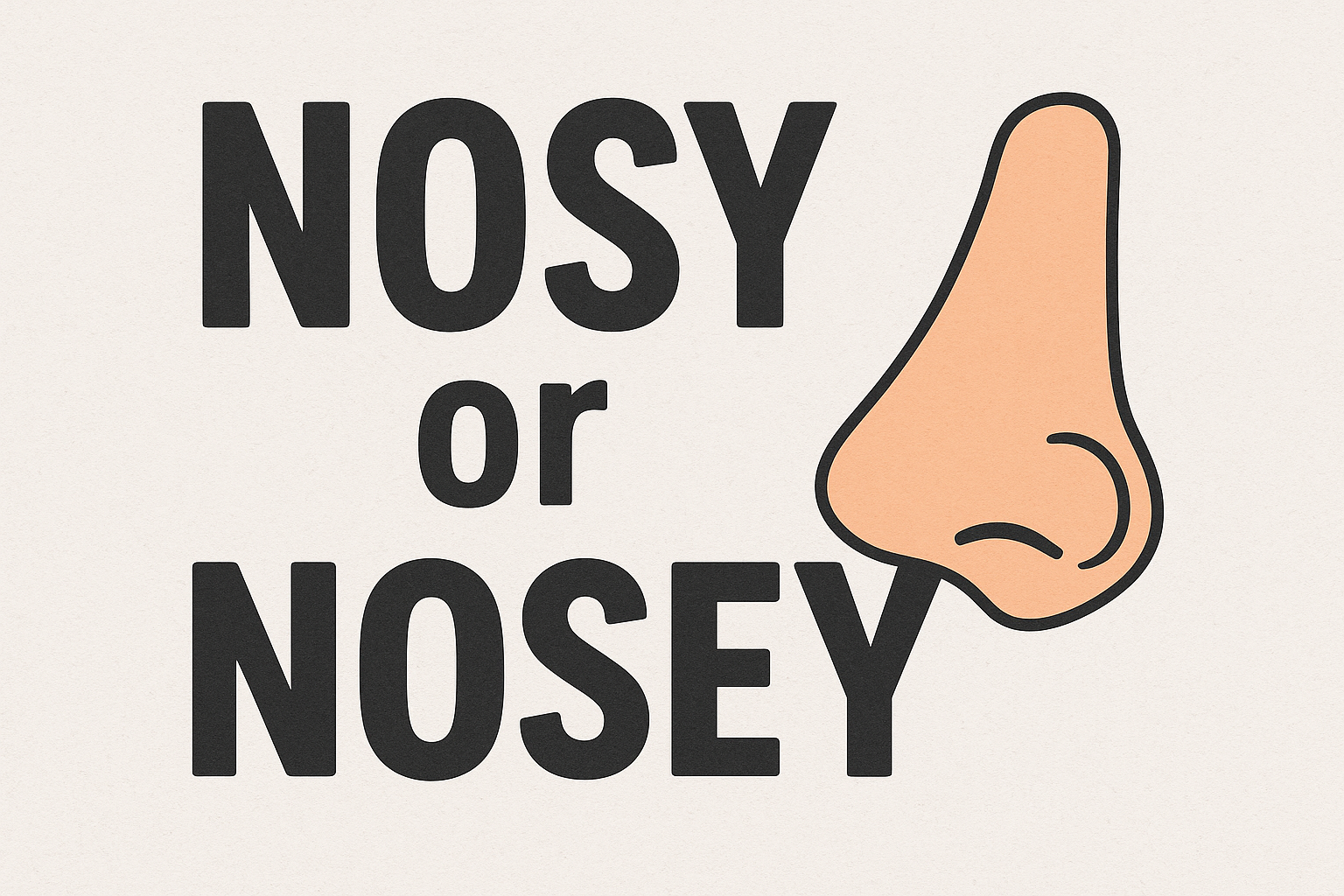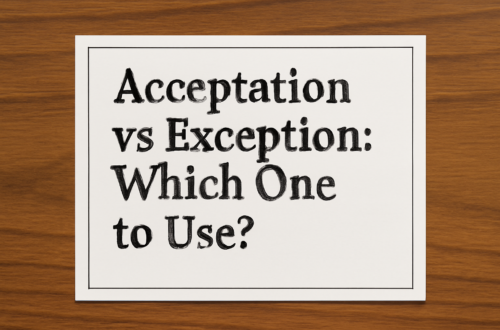The English language is full of words that sound identical but vary slightly in spelling. One of those commonly confusing pairs is “nosy” and “nosey.” If you’ve ever paused during writing and wondered, Which spelling is right? — you are not alone. Many people mix up these two words, and both versions appear in books, social media posts, and even professional writing.
So which one should you use? Is one wrong, or are both acceptable? This detailed guide breaks down everything you need to know about nosy vs. nosey, including meaning, usage, regional differences, examples, and tips for remembering the correct spelling.
What Does “Nosy” or “Nosey” Mean?
Both nosy and nosey describe someone who interferes with other people’s personal matters, asks too many questions, or tries to find out things that aren’t their business.
In simple terms, a nosy person is someone who:
- Eavesdrops on private conversations
- Asks personal questions
- Peeks into others’ lives
- Tries to get information that doesn’t concern them
The meaning is the same regardless of spelling. The only difference lies in regional preference and modern usage.
Which Spelling Is Correct?
✔ “Nosy” – The Preferred Spelling
The most widely accepted and commonly used spelling in English—especially in the United States—is nosy.
Examples:
- My neighbor is so nosy; she always watches from her window.
- Don’t be nosy about my personal life.
Most dictionaries, including Merriam-Webster, Oxford, and Cambridge, list nosy as the standard spelling.
✔ “Nosey” – Also Correct, But Less Common
“Nosey” is not incorrect. It is simply a less frequently used variant and appears more often in British English.
Examples:
- Stop being nosey and let me finish my work.
- He is nosey about everyone’s secrets.
While acceptable, it is not the preferred spelling in formal writing.
Usage in American vs. British English
United States
- Nosy is overwhelmingly preferred.
- “Nosey” is rarely used and may look like a spelling mistake.
United Kingdom
- Nosy is still more popular.
- However, “nosey” is commonly understood and sometimes used in informal writing.
Other English-speaking regions
- Canada, Australia, and New Zealand typically follow the U.S. preference of nosy.
Why Two Spellings Exist
The difference comes from the way English words evolve. Since “nostril,” “nose,” and “nosey” all relate to the nose, many early writers used “nosey” to show the connection. Over time, the spelling simplified to nosy, following the pattern of other English adjectives that drop unnecessary letters.
Today, “nosy” is simply the more modern and simplified version.
Examples of Sentences Using “Nosy”
- She’s too nosy about her coworkers’ personal details.
- Being nosy can sometimes get you into trouble.
- The nosy journalist tried to sneak into the private meeting.
Examples of Sentences Using “Nosey”
- Don’t be nosey—mind your own business.
- My nosey aunt asks too many questions at family gatherings.
- He’s always nosey about my phone messages.
When Should You Use Each Spelling?
If you want the safest choice, especially for professional writing, academic content, blogs, or websites:
Use “Nosy.”
It is modern, simple, and globally accepted.
Choose “nosey” only if:
- Your audience is primarily British.
- Your brand or writing style prefers traditional spellings.
- You want to match the spelling found in a quoted text or older writing.
How to Remember the Correct Spelling
Here are some simple memory tricks:
1. Think: “A nosy person sticks their nose into things.”
Even though nose has an “e,” the adjective does not need it.
2. Compare it to “busy,” “messy,” “greedy,” etc.
These common adjectives end in -y, not -ey.
3. Keep it simple: nosy = standard spelling.
When in doubt, choose the spelling most people use.
Is “Nosey Parker” Related?
Yes! The old British phrase “Nosey Parker” refers to a person who is overly inquisitive. It has contributed to both spellings surviving over time.
Even in this phrase, writers now commonly spell it:
- Nosy Parker (modern)
- Nosey Parker (traditional)
Both are recognized.
Which Spelling Should You Use on Your Website?
If you’re writing SEO-friendly content for a website, blog, or article, the best choice is:
✔ Use “Nosy” as the primary keyword.
It has:
- Higher search volume
- Better ranking potential
- Greater acceptance globally
You may also sprinkle “nosey” sparingly as a secondary keyword to capture alternative searches.
Conclusion
Both nosy and nosey are correct spellings that mean the same thing: someone who is overly curious about other people’s business. However, nosy is the modern, widely preferred spelling in most English-speaking countries, especially in the United States. “Nosey” is still acceptable but is used less often and mostly in British contexts.
If you’re writing professionally or aiming for SEO results, nosy is your best option.
By understanding the difference, you can confidently choose the correct spelling and ensure your writing looks polished, clear, and consistent.
FAQs
1. Is “nosey” wrong?
No, “nosey” is not wrong—it’s just less common than “nosy.”
2. Which spelling should I use for SEO?
Use nosy because it has higher search volume and is more widely accepted.
3. Is “nosy” used in British English?
Yes, “nosy” is still the more popular spelling even in the UK.
4. Do the two words have different meanings?
No, the meaning is identical. Only the spelling differs.
5. Why do some older books use “nosey”?
“Nosey” was more common in early English writing, but modern usage has shifted to “nosy.”






